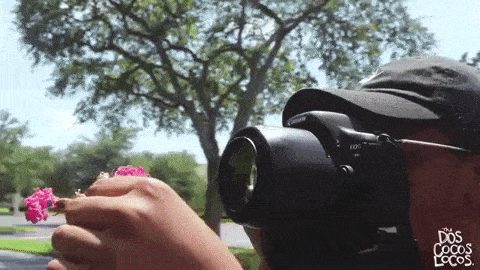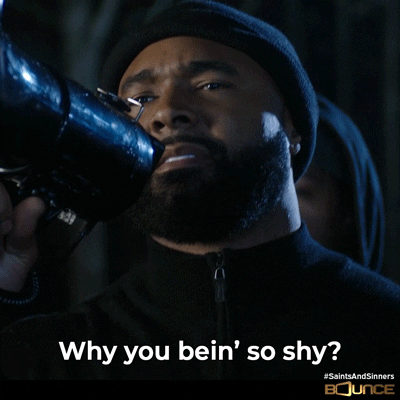- The Creator Lens
- Posts
- 🎥 Sora Leaked, 🎨 UK Artists Face 40% Income Plunge & ⚖️ More Influencer Lawsuits
🎥 Sora Leaked, 🎨 UK Artists Face 40% Income Plunge & ⚖️ More Influencer Lawsuits
Artists have leaked details about OpenAI's anticipated Sora video tool. Meanwhile, an intriguing lawsuit is challenging the notion of ownership in the influencer space—who really holds the rights to that carefully curated aesthetic? And in sobering news, UK artists are feeling the crunch, with earnings plummeting by a staggering 40% since 2010.
In today's rundown
VISUAL CREATORS
For your artistic side.

The Story: A collective of artists has leaked OpenAI’s video generator, Sora, as a protest against what they term as "art washing" and exploitation of their unpaid labor. Using the Hugging Face platform, they enabled users to generate 10-second videos from Sora's API, which had been under a limited early access program. After a brief window of functionality, OpenAI and Hugging Face revoked access, having faced backlash from the creative community about their handling of Sora's development.
Leaked OpenAI SORA is f*cking good 🤯
— Haider. (@slow_developer)
4:04 PM • Nov 26, 2024
The Details:
The group, named "Sora PR Puppets," claims they were misled into contributing creatively without adequate compensation while OpenAI benefits from their input.
Sora allowed users to create short videos by inputting simple text prompts, but the access was cut off by OpenAI after just three hours of usage.
The artists criticized OpenAI for demanding approval of all Sora outputs before they could be publicly shared, viewing the program as more of a PR strategy than a genuine collaboration.
OpenAI maintains that participation in the Sora program is voluntary, asserting that feedback and usage are not compulsory, while promising ongoing support for participating artists.
┌∩┐(◣◢)┌∩┐ DEAR CORPORATE AI OVERLORDS ┌∩┐(◣◢)┌∩┐
We received access to Sora with the promise to be early testers, red teamers and creative partners. However, we believe instead we are being lured into "art washing" to tell the world that Sora is a useful tool for artists.
ARTISTS ARE NOT YOUR UNPAID R&D
☠️ we are not your: free bug testers, PR puppets, training data, validation tokens ☠️
Why It Matters: This incident highlights larger tensions in the creative industry regarding labor and compensation in the AI era. The protest against OpenAI shines a light on the ethical implications of utilizing unpaid or undervalued contributions from artists while corporations leverage their creativity for profit. For creatives, this underscores the importance of maintaining their voice and autonomy in an increasingly AI-driven landscape, urging an industry-wide conversation about fair compensation and the preservation of artistic integrity in tech collaborations. It serves as a cautionary tale for other creators navigating partnerships with powerful platforms.
OMG OpenAI Sora has been leaked!
Free to use now on Huggingface, link in comment
It can be shut down anytime, try it now! It can generate 1080P and up to 10s video! And the results are incredible!
9 Examples:
— el.cine (@EHuanglu)
4:25 PM • Nov 26, 2024
PRODUCTION MASTERY
The commercial aspects of creativity.

The Story: A new report from the University of Glasgow reveals alarming trends in the income of visual artists in the UK, with average earnings plummeting to just £12,500 annually—down 40% since 2010. Women and disabled artists face stark disparities, with women earning 40% less than their male counterparts and disabled artists making a mere £3,750, illustrating significant inequality across demographics.
The Details:
The report surveyed 1,200 artists and was commissioned by DACS, highlighting the precarious financial landscape for visual artists in the UK.
Nearly half (48%) of artists rely solely on their artistic practice, yet a majority (51%) must take additional jobs to make ends meet, earning roughly £17,500 annually.
80% of surveyed artists reported unstable or very unstable income, raising concerns about the future sustainability of their careers.
The report underscores the urgent need for improved support and protections for artists, particularly in response to factors like rising studio costs and the impact of AI on their work.
Key recommendations from the report call for fairer pay and protections, including the establishment of a Smart Fund to enhance collective licensing revenue and regulations to secure AI compensation.
Why It Matters: The findings of this report shed light on a critical and often overlooked issue in the creative industry: the financial wellness of visual artists. With incomes dropping drastically and severe inequities steeped in gender and disability, there's a clear warning sign for both the future of the arts sector and the diversity of creative talent in the UK. For creative professionals, understanding and addressing these income disparities not only affects their own livelihoods but also impacts the overall vibrancy and innovation of the industry as a whole. Recognizing these challenges opens up conversations about necessary structural changes and advocacy for artists’ rights moving forward.
TOGETHER WITH AI TOOL REPORT
There’s a reason 400,000 professionals read this daily.
Join The AI Report, trusted by 400,000+ professionals at Google, Microsoft, and OpenAI. Get daily insights, tools, and strategies to master practical AI skills that drive results.
CREATOR ECONOMY
Navigating the digital creative world.

The Story: A significant lawsuit is unfolding in the influencer world as Sydney Nicole Gifford accuses fellow creator Alyssa Sheil of copyright infringement, alleging that Sheil has effectively copied Gifford's unique aesthetic and content style across social media platforms, including Instagram and TikTok. This unprecedented legal battle could redefine copyright protections in the content creation industry and establish new standards for originality among influencers.

The Details:
Gifford claims Sheil's posts mirror her aesthetic with identical styling, tones, camera angles, and even product promotions, alleging at least 30 instances of copying.
After an initial supportive relationship, Gifford says Sheil began mimicking her style following a joint photoshoot and subsequent block on social media.
Gifford's lawsuit seeks damages between $30,000 and $150,000 for “mental anguish” and loss of income, highlighting a potential negative impact on her follower engagement and earnings.
A Texas judge allowed the case to move forward, suggesting Gifford established a valid claim that her likeness and copyright rights were violated by Sheil.
Experts predict that a win for Gifford could lead to a wave of similar lawsuits in the influencer industry, radically shifting how creators protect their intellectual property.

Why It Matters: This case is a pivotal moment for the influencer economy, addressing a significant gap in legal protections for creators who feel their content is being appropriated without permission. If Gifford prevails, it may prompt a new wave of copyright claims, reshaping industry norms and influencing how creators perceive originality and ownership of their work. This could foster a more conscientious approach to content creation and establish clearer boundaries in an increasingly competitive and algorithm-driven environment.
📫 Sign up for The Creator Lens
🔥 Press Worthy

📽️ VISUAL CREATORS
Canon is making strides with its new LI5070SA global shutter sensor, designed for cinema and security cameras. Capable of 12-bit DCI 4K at 60p, it eliminates the rolling shutter effect, capturing all pixels simultaneously. While not in EOS consumer cameras yet, this development hints at a promising future for Canon enthusiasts!
Tamron has unveiled its first RF mount lens for Canon, the 11-20mm F/2.8 Di III-A1 RXD. This ultra-wide-angle zoom lens offers a 17.6-32mm equivalent and is designed for APS-C cameras. With 12 elements and impressive optical quality, it's perfect for creatives seeking versatility.
📈 PRODUCTION MASTERY
Josh Kline, an US artist, argues that social media may be one of the worst things to happen to artists, erasing boundaries and fostering isolation. His exhibition, “Social Media,” highlights this shift, showcasing critiques of commodification and the decline of meaningful art. Kline raises concerns about how platforms promote superficiality over authenticity, impacting the quality of art and artists.
Young photographers are flocking to vintage digital cameras, reveling in their peculiar quirks and nostalgic vibes. As sleek smartphone shots dominate, compact digicams offer a retro alternative, drawing on a quirky aesthetic from the early 2000s that embraces imperfection.
🎭 CREATOR ECONOMY
DJI's latest release, the Mic Mini, aims to shake up audio recording for content creators. This ultra-light, wireless mic weighs just 10g and boasts impressive features like dual-channel recording and 48 hours of battery life.
TikTok is tackling mental health concerns by imposing age restrictions on beauty filters for users under 18. The platform aims to combat distorted body image perceptions, with plans to roll out global restrictions. Filters seen as “funny” will remain accessible, aiming to ensure a safer environment.
📫 Sign up for The Creator Lens
📚 Learn & Grow

📽️ VISUAL CREATORS
OpenAI’s Sora and other AI video makers look amazing in their demos – why won’t they let us try them?
Why Photographers Won't Succeed On Instagram in 2025
📈 PRODUCTION MASTERY
The REAL Reason People Are Scared of AI
Spotify vs YouTube: Who Wins Podcasts? (CEO Interview)
🎭 CREATOR ECONOMY
Should you really stick to your niche? Well, yes and no!

Reply